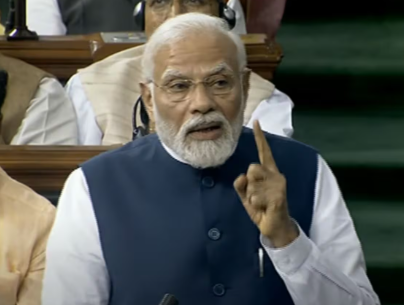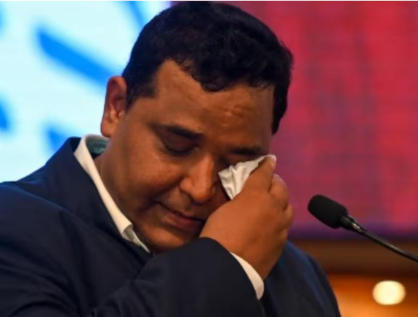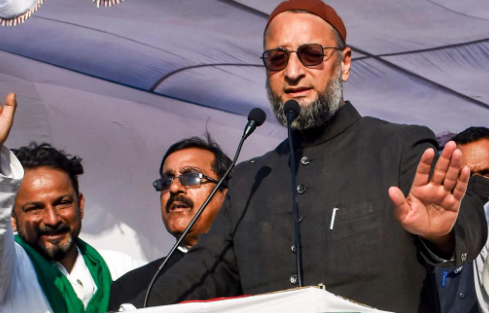
Owaisi Fierce Condemnation: ‘Why Hindus Kept Out…’ in Face of Uttarakhand’s Controversial Uniform Civil Code Bill
Owaisi Scathing Critique: Exclusion of Hindus in Uttarakhand’s Uniform Civil Code Bill
As the Uniform Civil Code bill was tabled in Uttarakhand, AIMIM chief Asaduddin Owaisi raised significant concerns regarding its scope and implications. Owaisi pointed out that the proposed law, instead of truly embodying uniformity, appears to be tailored towards Hindu interests, with exemptions provided to certain communities, notably Hindus and tribals.
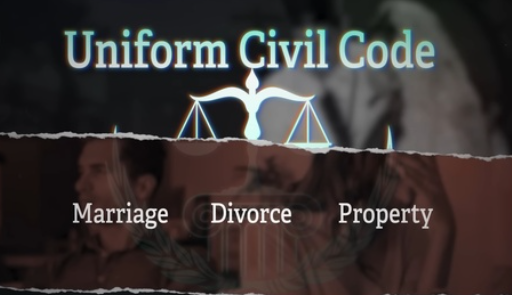
Expressing his reservations, Owaisi emphasized that a uniform law should encompass all communities, yet the Hindu Undivided Family remains untouched, raising questions about the code’s inclusivity and fairness. He questioned the validity of a law that excludes the majority of the state’s population, emphasizing the need for comprehensive and equitable legislation.
Owaisi highlighted the glaring omission of tribals from the code, asserting that true uniformity cannot be achieved if certain communities are exempted. This omission raises constitutional and legal concerns, further complicating the implementation and enforcement of the proposed law.
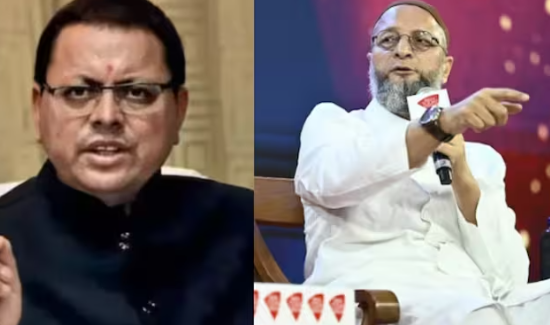
Moreover, Owaisi underscored the infringement upon fundamental rights posed by the code, particularly for Muslims, who may be compelled to conform to practices and beliefs contrary to their religious convictions. He cited Articles 25 and 29 of the Constitution, which guarantee the freedom to practice one’s religion and preserve cultural identity, as being violated by the imposition of a uniform code.
Critically analyzing the bill’s compatibility with existing legal frameworks, Owaisi highlighted potential conflicts with the Shariah Act, Hindu Marriage Act, and other relevant statutes. He questioned the necessity of mandating a Uniform Civil Code when alternative provisions, such as the Special Marriage Act, already exist, suggesting that such legislation should be voluntary rather than mandatory.
Owaisi also criticized Uttarakhand Chief Minister Pushkar Singh Dhami for prioritizing the bill over pressing economic and environmental concerns facing the state. He highlighted the state’s financial struggles, exacerbated by recent natural disasters, questioning the rationale behind expending resources on contentious legislation rather than addressing urgent priorities.
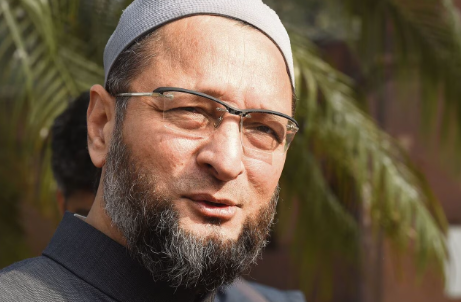
The BJP’s electoral promise of implementing a Uniform Civil Code in Uttarakhand reflects broader ideological commitments, yet the proposed law’s exclusionary provisions have stirred controversy and opposition from Muslim bodies. The All India Muslim Personal Law Board and Jamiat Ulema-e-Hind have voiced strong objections, citing concerns about religious freedom and adherence to Shariah principles.
In essence, Owaisi’s critique of the Uniform Civil Code bill underscores the complexities and challenges inherent in legislating on matters of personal law and religious practice. As debates unfold and stakeholders weigh in on the proposed legislation, the need for inclusive, equitable, and constitutionally sound approaches remains paramount to uphold the principles of justice and pluralism in India’s diverse society.
The controversy surrounding the Uniform Civil Code bill in Uttarakhand highlights broader debates about secularism, religious freedom, and cultural diversity in India. While proponents argue for the necessity of a uniform legal framework to promote gender equality and social justice, critics like Owaisi caution against imposing a singular code that may undermine religious and cultural pluralism.
Owaisi’s critique underscores the importance of ensuring that any proposed legislation respects and accommodates the diverse religious and cultural practices of India’s multi-ethnic society. Excluding certain communities or imposing restrictions that contravene deeply held beliefs can exacerbate social tensions and undermine the principles of tolerance and inclusivity enshrined in the Indian Constitution.
The objections raised by Muslim bodies, such as the All India Muslim Personal Law Board and Jamiat Ulema-e-Hind, highlight the need for meaningful dialogue and consultation with affected communities in the formulation of legal reforms. Any attempt to impose a Uniform Civil Code must be guided by principles of equity, justice, and respect for human rights, rather than serving partisan interests or ideological agendas.
For the latest updates-click here.

